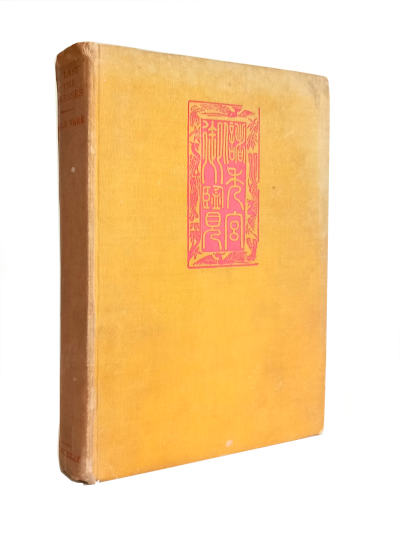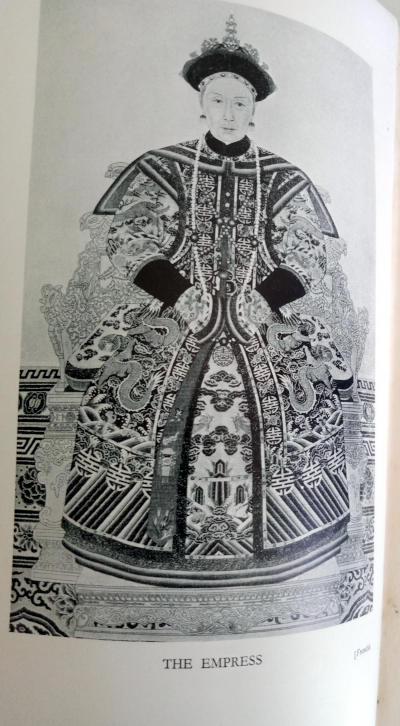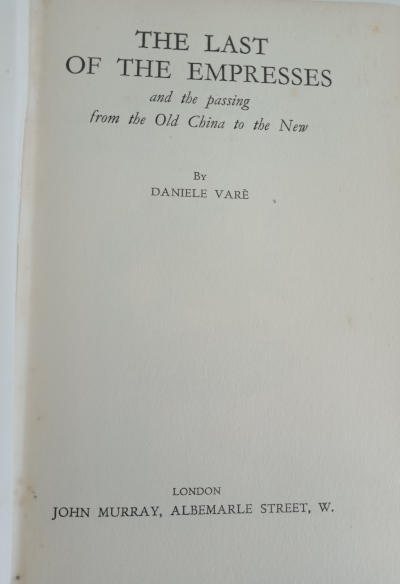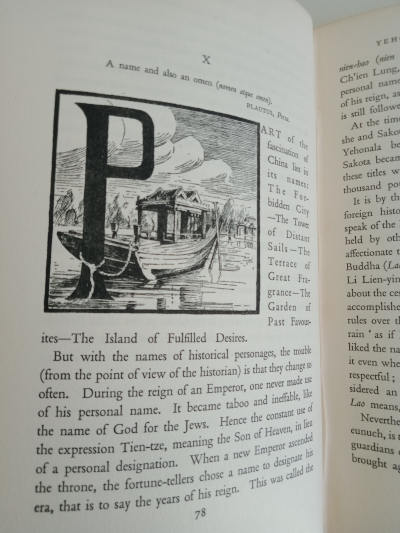A biography of Empress Dowager Cixi, told in the style of an engaging novel, by and Italian diplomat.
About Empress Dowager Cixi (from Wikipedia):
Empress Dowager Cixi (29 November 1835 – 15 November 1908), of the Manchu Yehe Nara clan, was a Chinese noblewoman, concubine and later regent who effectively controlled the Chinese government in the late Qing dynasty for 47 years, from 1861 until her death in 1908. Selected as a concubine of the Xianfeng Emperor in her adolescence, she gave birth to a son, Zaichun, in 1856. After the Xianfeng Emperor’s death in 1861, the young boy became the Tongzhi Emperor, and she assumed the role of co-empress dowager, alongside the Emperor’s widow, Empress Dowager Ci’an. Cixi ousted a group of regents appointed by the late emperor and assumed the regency along with Ci’an, who later mysteriously died. Cixi then consolidated control over the dynasty when she installed her nephew as the Guangxu Emperor at the death of her son, the Tongzhi Emperor, in 1875. This was contrary to the traditional rules of succession of the Qing dynasty that had ruled China since 1644.
Cixi supervised the Tongzhi Restoration, a series of moderate reforms that helped the regime survive until 1911. Although Cixi refused to adopt Western models of government, she supported technological and military reforms and the Self-Strengthening Movement. She supported the principles of the Hundred Days’ Reforms of 1898, but feared that sudden implementation, without bureaucratic support, would be disruptive and that the Japanese and other foreign powers would take advantage of any weakness. She placed the Guangxu Emperor, who, she thought, had tried to assassinate her, under virtual house arrest for supporting radical reformers, publicly executing the main reformers. After the Boxer Rebellion led to invasion by Allied armies, Cixi initially backed the Boxer groups and declared war on the invaders. The ensuing defeat was a stunning humiliation. When Cixi returned to Beijing from Xi’an, where she had taken the emperor, she became friendly to foreigners in the capital and began to implement fiscal and institutional reforms aimed to turn China into a constitutional monarchy. The deaths of both Cixi and the Guangxu Emperor in November 1908 left the court in hands of Manchu conservatives, a child, Puyi, on the throne, and a restless, deeply divided society.
Historians both in China and abroad have debated her legacy. Conventionally denounced as a ruthless despot whose reactionary policies – although successfully self-serving in prolonging the ailing Qing dynasty – led to its humiliation and utter downfall in the Wuchang Uprising. Revisionists suggested that Nationalist and Communist revolutionaries scapegoated her for deep-rooted problems beyond salvage, and lauded her maintenance of political order. She was responsible for numerous effective, if belated reforms – including the abolition of slavery, ancient torturous punishments and the ancient examination system in her ailing years. The latter was supplanted by institutions including the new Peking University.
About the author (from Wikipedia):
Daniele Varè (12 January 1880 – 27 February 1956) was an Italian expatriate diplomat and author, most famous for the China-set novel The Maker of Heavenly Trousers (republished in 2012 by Penguin Modern Classics). He is also remembered for the Laughing Diplomat (John Murray, 1938), his autobiography as Italian diplomat.
Varè’s father, Giovanni Battista Varè (Venice 1817 – Rome 1884), a lawyer, of the L’Indipendente newspaper and associate of Daniel Manin: hence as an Italian nationalist he was exiled from northern Italy by the then Austrian authorities.
Later he was vice-president of the Venetian Assembly and della camera Italiana : ministero Guardasigilli del Regno (Ministri di grazia e giustizia del Regno d’Italia) in 1879.
Varè spent his early years in the UK, returning to Italy with his Scottish mother at the age of 11. His mother had met Giambattista in Rome in 1872 and married him in 1873. Young Daniele entered the Italian Diplomatic Service in 1907 and was first assigned to China in 1912. In 1909 he had married Elizabeth Bettina Chalmers of Aldbar Castle near Brechin. He returned as Italian Minister (Ambassador) to the Republican Government in China between 1927 and 1931. In Beijing he had as a subordinate Galeazzo Ciano (later to become Benito Mussolini’s Minister of Foreign Affairs). He also served in Geneva, Copenhagen and Luxembourg.
In 1932, while serving as Ambassador to Denmark, he was forced to resign by the Fascist Regime as many other Italian Diplomats. Hence he originally published in English and only later in Italian.






